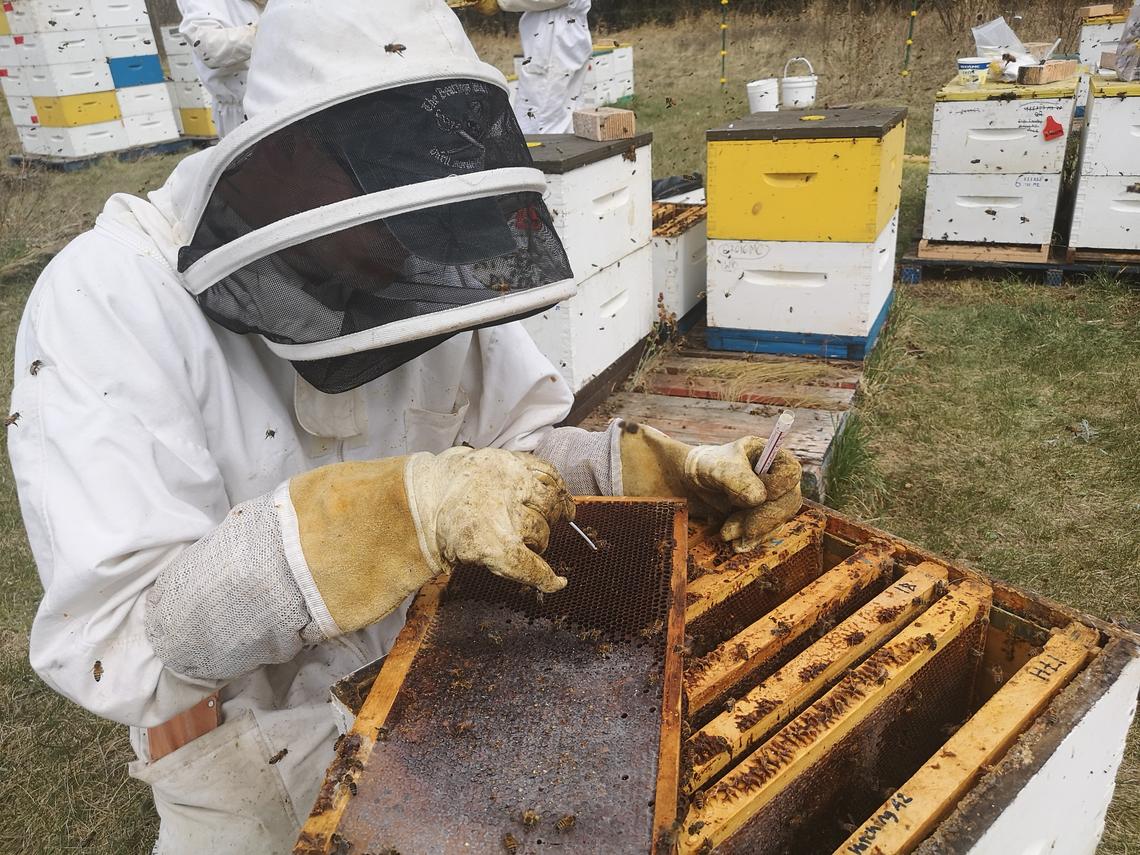June 16, 2021
UCalgary conference explores COVID-19 and other emerging diseases

Before the pandemic, many people may have been blissfully unaware that diseases in animals also threaten human health. Animal health laboratorians, however, devote their careers to identifying animal diseases that could threaten not only animal health and welfare, but also, potentially food safety and public health.

Jennifer Davies recently hosted a virtual conference focused on One Health perspectives on emerging diseases and antimicrobial resistance.
Adrian Shellard.
“Emerging disease is always an issue,” says Dr. Jennifer Davies, DVM, the director of the Diagnostic Services Unit (DSU) and senior instructor at the Faculty of Veterinary Medicine (UCVM). “We know that there are new diseases that emerge within animals all the time, and some of these can obviously have significant impacts so there's a lot of reasons that we need to be on top of what's happening with animal health and disease in our province and across the nation.”
Last week’s virtual gathering of the Canadian Animal Health Laboratorians Network (CAHLN), hosted by UCVM, focused on One Health perspectives on emerging diseases and antimicrobial resistance. More than 100 animal disease experts heard colleagues discuss work including COVID-19 identification in farmed mink in B.C., how one large diagnostic lab pivoted to help with the pandemic, as well as emerging diseases in pigs around the world.
Grad students also presented research. “I work with a really nasty disease of honey bees,” says Dr. Michael Zabrodski, DVM, a UCVM grad completing his master's at the Western College of Veterinary Medicine in Saskatchewan. “Beekeepers use antibiotics to try and keep this disease in check. But because of concerns with antibiotic resistance we need to improve how we manage this disease.
"We're trying to develop a test so that beekeepers can get their honey tested to tell them if they're at a high risk of having this disease, which will help guide their decision about using antibiotics.” Zabrodski won the CAHLN award for best student poster presentation.

Michael Zabrodski won the best student poster presentation at the conference for this research on ‘a really nasty disease of honey bees.’
Michael Zabrodski
Pandemic highlights importance of understanding emerging diseases of animal origin
The conference was originally scheduled to be held on campus last year. The fact that it was cancelled due to the pandemic highlights “the importance of understanding emerging diseases of animal origin,” says Davies. “The pandemic has really highlighted that diseases don't respect borders and they don't even necessarily respect the barriers between animal hosts. They have that ability to jump from one species to the next.”
Davies expects the devastating effects of the pandemic will create more interest in animal health laboratories. “I think there will be a renewed interest in veterinary medicine and animal health and likely research in those areas including, I hope, funding for veterinary diagnostic labs where a lot of the disease diagnosis occurs.”
Last fall, the DSU received two grants totalling $3.44 million to increase its capacity to provide affordable livestock diagnostics to producers in Alberta and to help identify diseases and patterns of antimicrobial resistance.
Zabrodski, who plans to work as a veterinarian pathologist, found the virtual gathering valuable. “These conferences really highlight the need for increased collaboration and interaction between all of our different laboratories across the country.”




